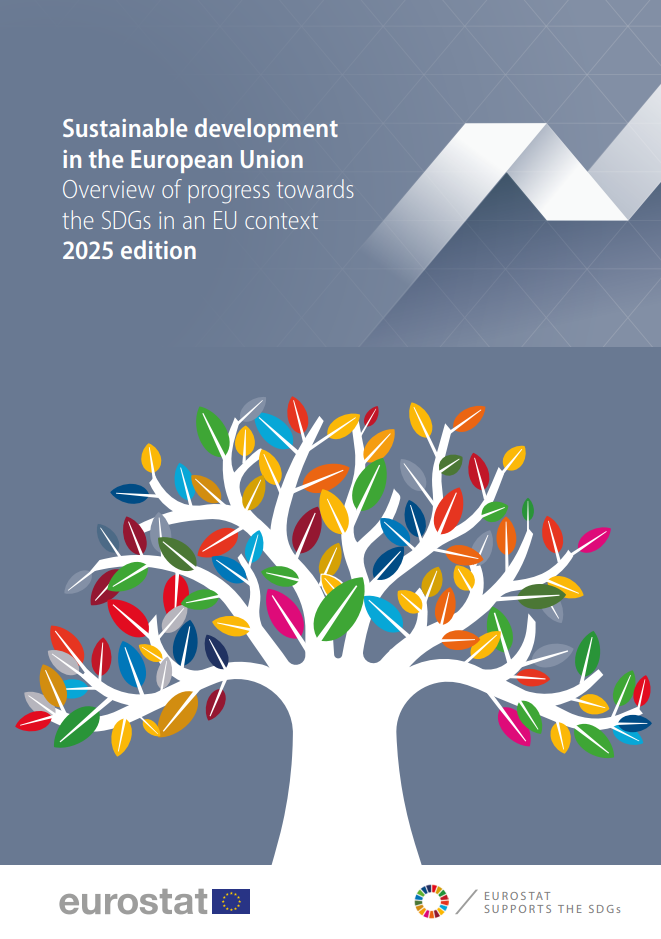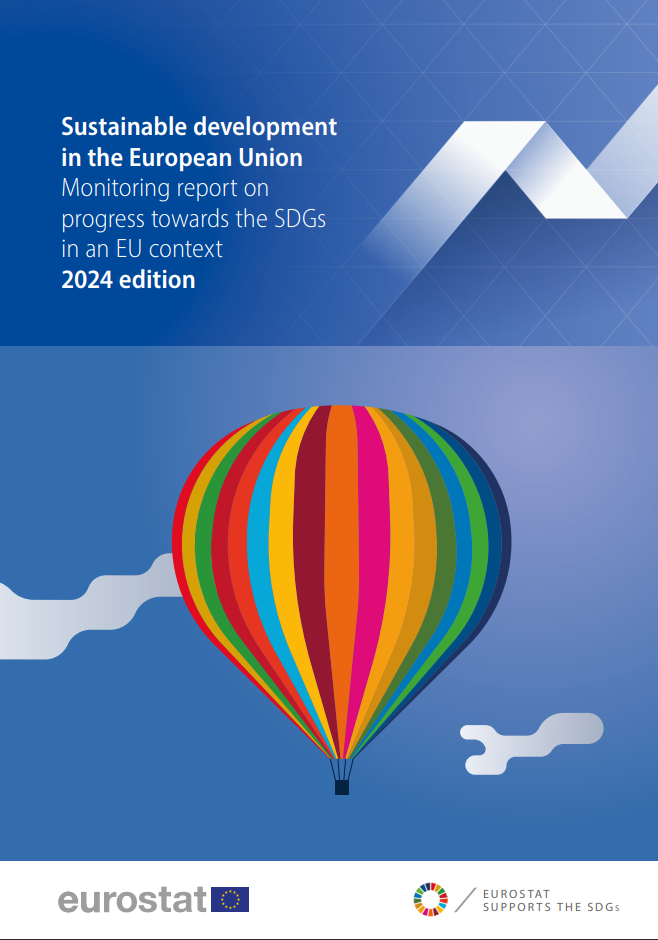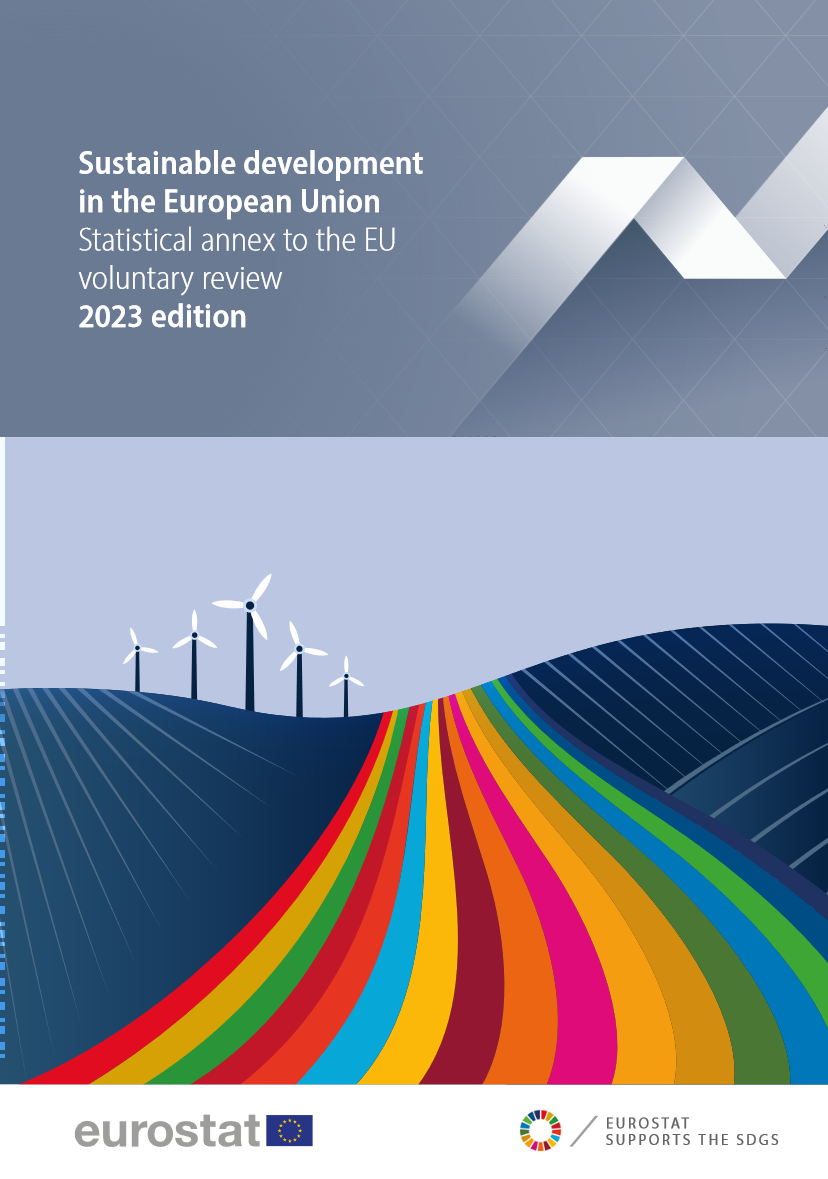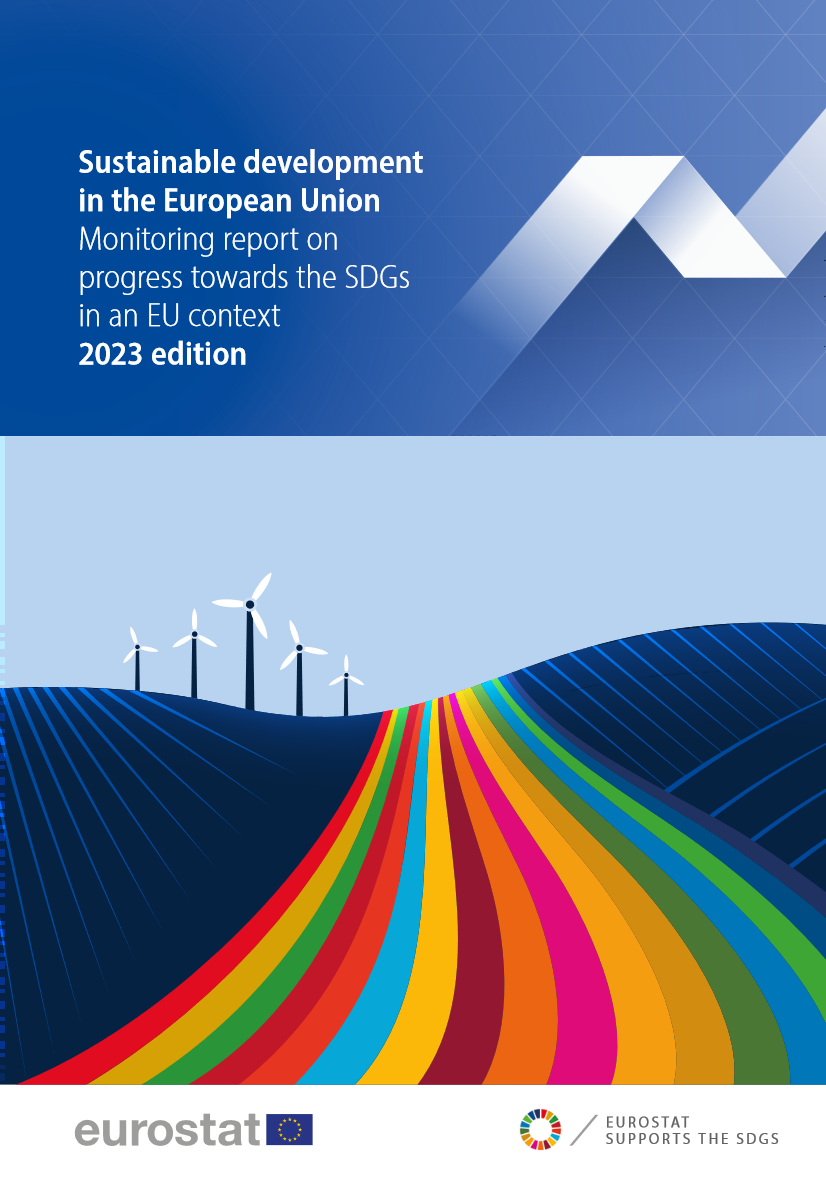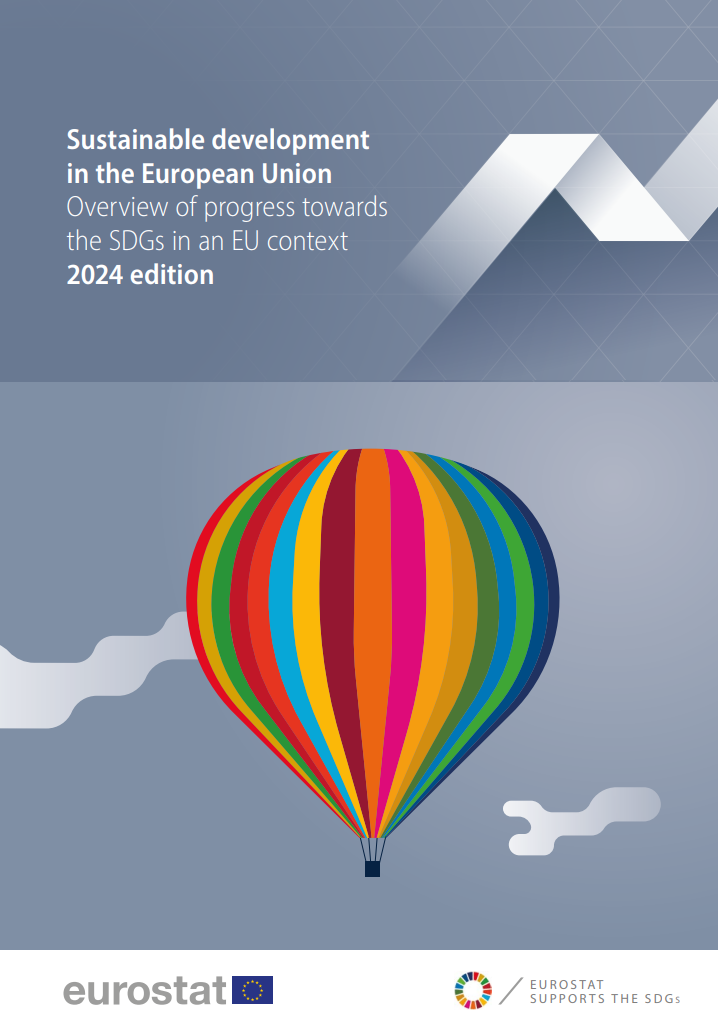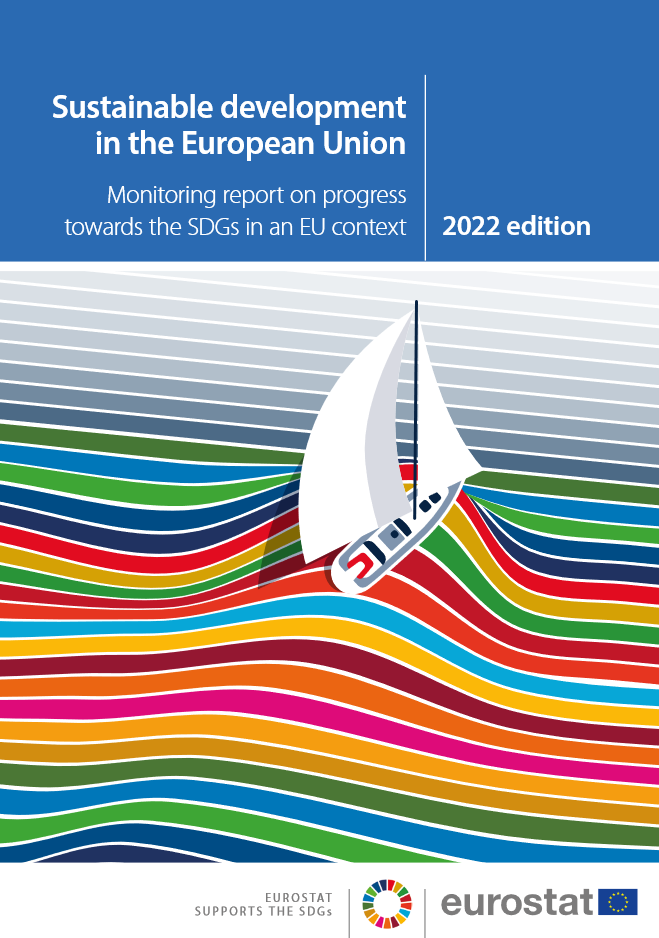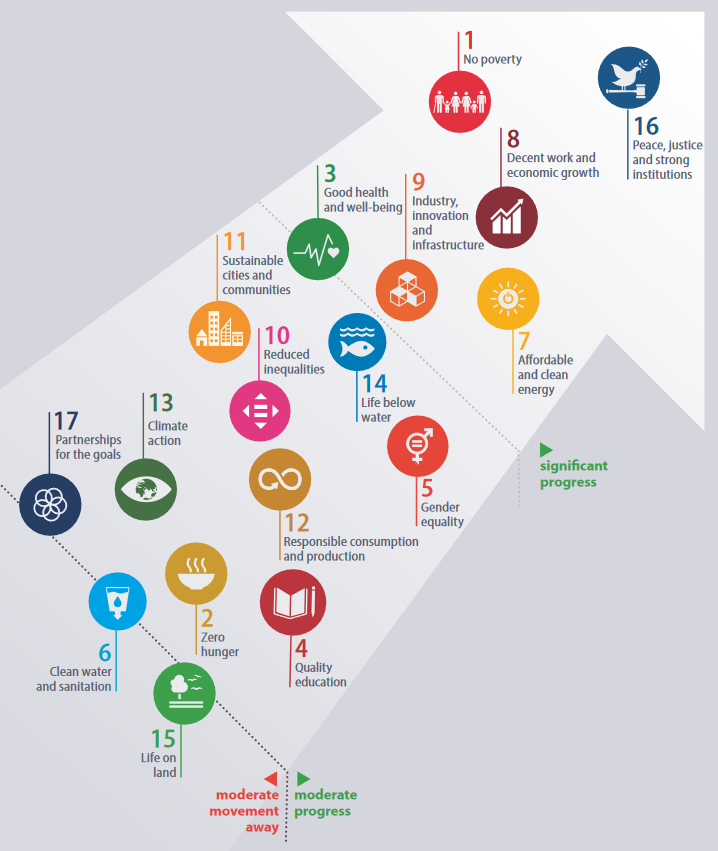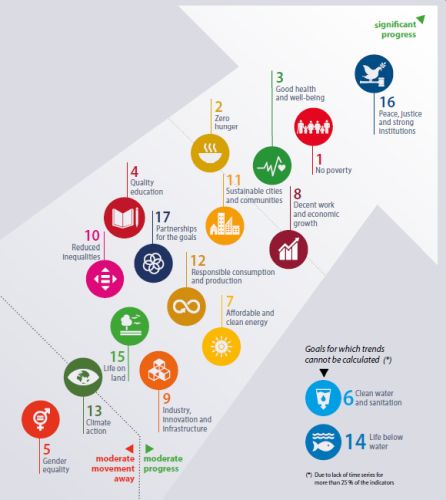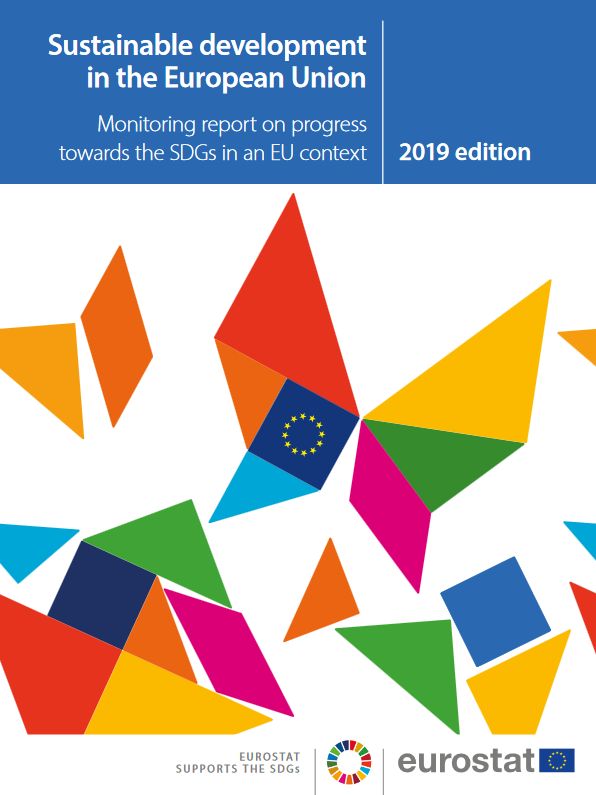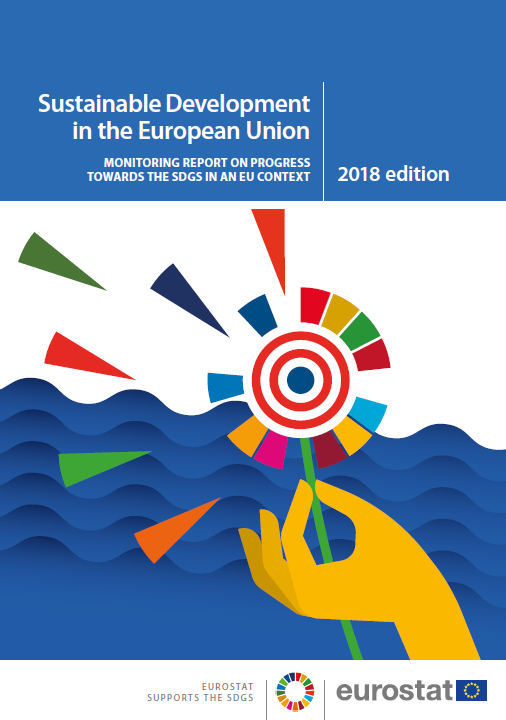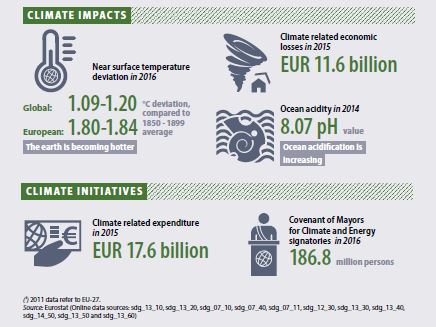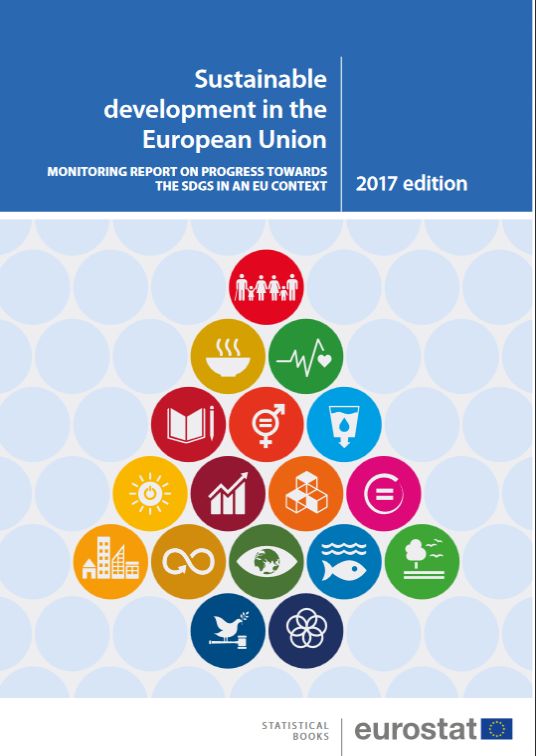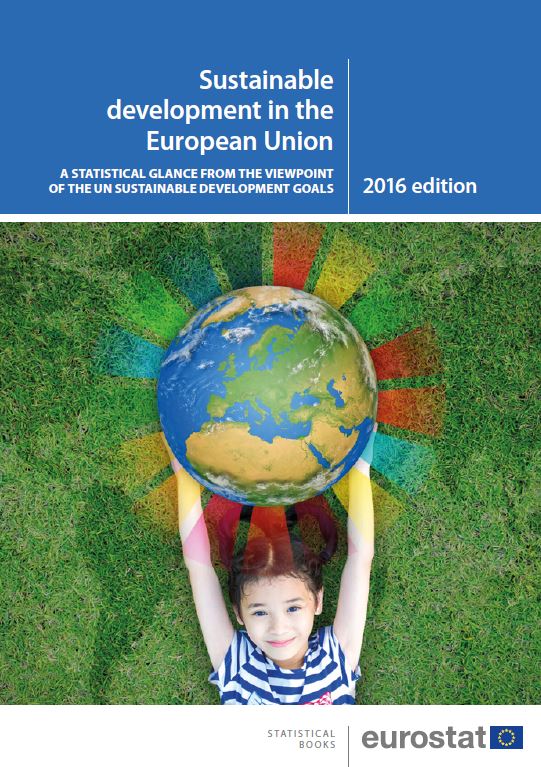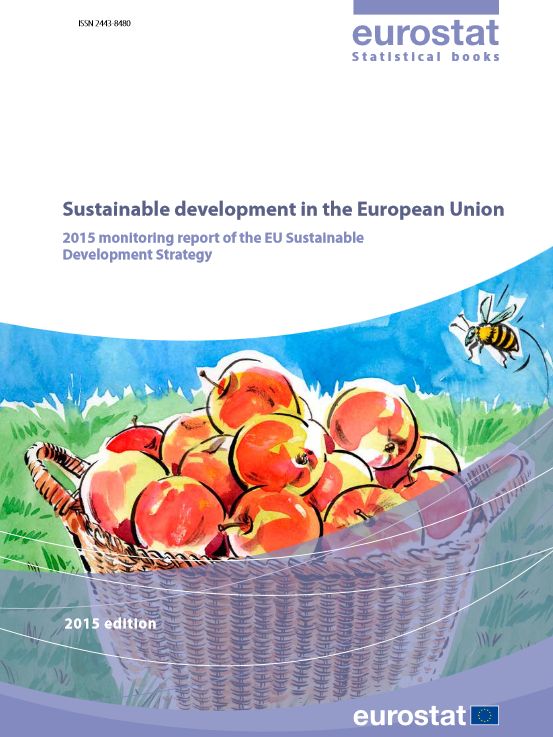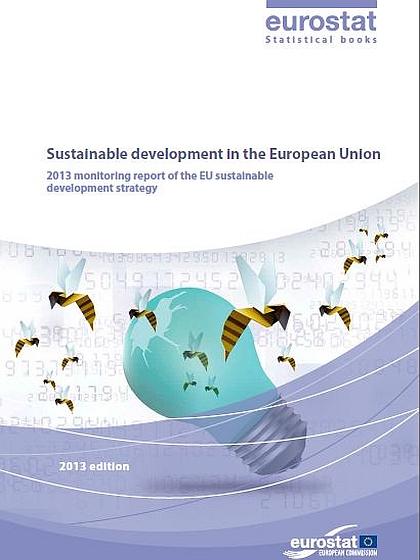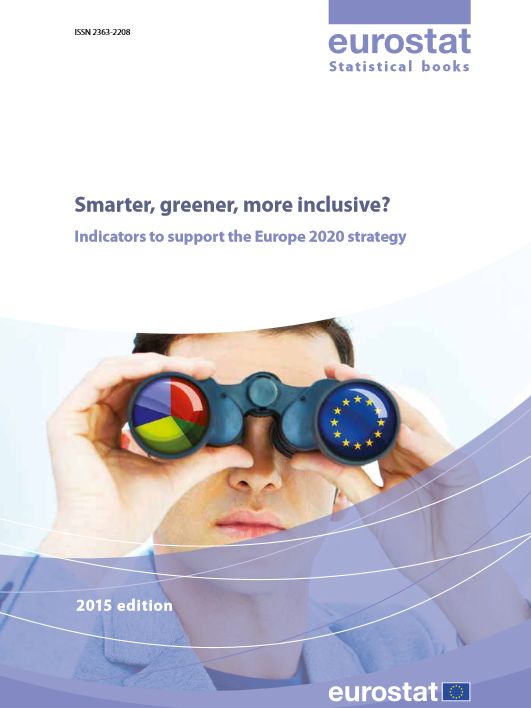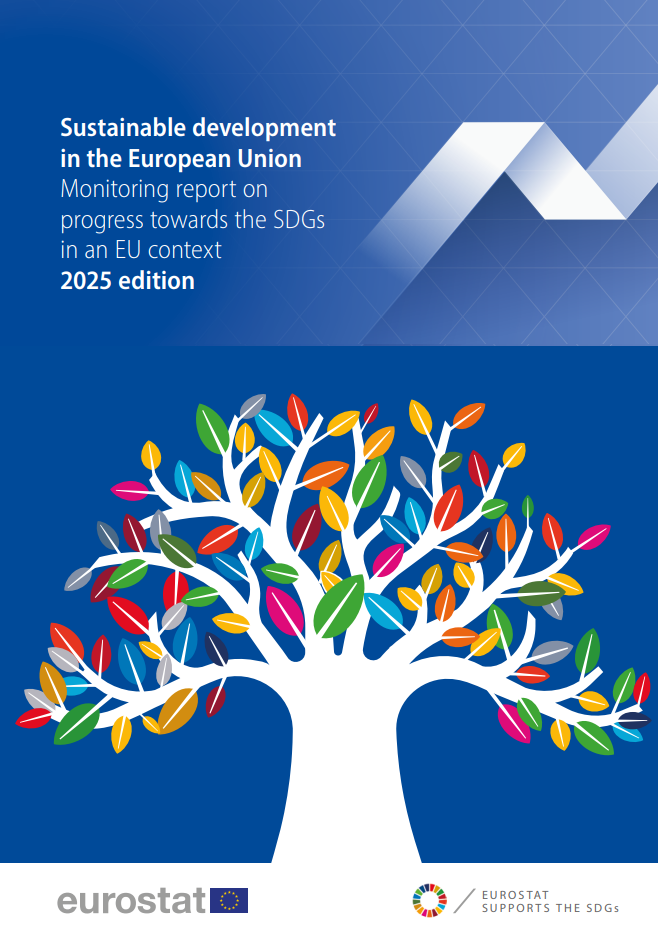
© European Union 2025
Sustainable Development in the European Union – 2025
Monitoring Report on Progress Towards the SDGs in an EU Context
- Publication
- Citation
Hijman, Remko et al. (ed.) 2025: Sustainable Development in the European Union. Monitoring Report on Progress Towards the SDGs in an EU Context. [eurostat Statistical books 2025 edition]. Luxembourg: Publications Office of the European Union.
Eurostat's "Sustainable Development in the European Union: Monitoring Report on Progress towards the SDGs in an EU Context" (2025 edition) offers the ninth comprehensive assessment of the EU's journey toward the 17 Sustainable Development Goals. Researchers from Ecologic Institute authored the chapters on Zero Hunger (SDG 2), Clean Water and Sanitation (SDG 6), Affordable and Clean Energy (SDG 7), Climate Action (SDG 13), Life Below Water (SDG 14), Life on Land (SDG 15) and Partnerships for the Goals (SDG 17), providing rigorous, policy-relevant evidence.
Gains in Clean Energy and Sustainable Agriculture
Under Affordable and Clean Energy (SDG 7), the EU achieved a record 25 % share of renewables in its gross energy consumption for 2023 – up five percentage points over five years. Despite this progress, even faster growth is needed for the EU to hit its 2030 target of 42.5 % share of renewables. The Zero Hunger (SDG 2) analysis reveals improvements in the sustainability of agricultural production in the EU. The use and risk of chemical pesticides decreased strongly, and organic farming rose to 10.5 % of the EU’s utilised agricultural area in 2022, though growth in organic farming will need to accelerate to hit the EU’s 2030 target of 25 %.
Mixed Signals on Partnerships and Water Resources
In Partnerships for the Goals (SDG 17) both favourable and unfavourable trends lead to a mixed picture. EU financing to developing countries has increased, but environmental taxes contribute a small and declining share of EU tax revenue, reaching a new low in 2023. For Clean Water and Sanitation (SDG 6), the EU is moving opposite its desired direction. Trends in water quality are mixed, while pressures on fresh-water resources have increased, accompanied by a strong increase over the last decade in the EU area affected by drought.
Noteworthy Climate, Marine and Land Trends
Climate Action (SDG 13) data shows EU greenhouse-gas emissions have decreased significantly in the EU, with 2023 emissions 36 % lower than they were in 1990. Despite this progress, the pace of decarbonisation must increase to hit the EU’s 2030 target of a 55% reduction. In Life Below Water (SDG 14), increased seawater acidity and marine eutrophication led to declines in ocean health, though positive trends were seen in sustainable fisheries. Life on Land (SDG 15) indicators highlight some improvements in the status of forest and river systems, but biodiversity indicators show declines and a lack of progress.
Contact
- Language
-
English
- Credits
Editor-in-chief
Remko Hijman (Eurostat, Unit E2 – Environmental statistics and accounts; sustainable development)
Editors
Markus Hametner, Mariia Kostetckaia, Pooja Patki (WU Vienna); Aaron Best, Benedict Bueb, Doris Knoblauch, Nora Sophie Kögel, Ruta Landgrebe, Ulf Stein, Eike Karola Velten (Ecologic Institute); Ariane De Rocchi, Malena Gmür, Anik Kohli, Leroy Ramseier, Myriam Steinemann, Alexandra Zwankhuizen (INFRAS)
Co-editors
Arturo de la Fuente, Hendrik Doll, Kathrin Gebers, Johanna Giczi, Merja Jalava Hietanen, Klara Horakova, Ágnes Lesznyák, Christine Mayer, Friderike Oehler, Åsa Önnerfors (Eurostat, Unit E2 – Environmental statistics and accounts; sustainable development)- Funding
-
European Commission, Eurostat (Eurostat), International - Published by
-
Publications Office of the European Union (Publications Office), International - Year
- Dimension
- 352 pp.
- ISBN
-
978-92-68-22574-5 (print)978-92-68-22573-8 (pdf)
- ISSN
-
2443-8472 (print)2443-8480 (pdf)
- DOI
-
10.2785/8386424 (print)10.2785/1111373 (pdf)
- Project
- Project ID
- Table of contents
-
Click to show full table of contents
Forewords
Acknowledgements
About this publication
Synopsis
Introduction
1. No poverty
2. Zero hunger
3. Good health and well-being
4. Quality education
5. Gender equality
6. Clean water and sanitation
7. Affordable and clean energy
8. Decent work and economic growth
9. Industry, innovation and infrastructure
10. Reduced inequalities
11. Sustainable cities and communities
12. Responsible consumption and production
13. Climate action
14. Life below water
15. Life on land
16. Peace, justice and strong institutions
17. Partnerships for the goals
EU sustainable development indicators at regional level
The EU in the world and spillover effects of EU consumption
Annexes - Keywords
-
Sustainable Development Goals, SDGs, indicator set, trends, 2030 AgendaEuropemonitoring
Giczi, Johanna et al. (ed.) 2025: Sustainable Development in the European Union. Overview of Progress Towards the SDGs in an EU Context. Luxembourg: Publications Office of the European Union.
Gebers, Kathrin et al. (ed.) 2024: Sustainable Development in the European Union. Monitoring Report on Progress Towards the SDGs in an EU Context. [eurostat Statistical books 2024 edition]. Luxembourg: Publications Office of the European Union.
Giczi, Johanna et al. (ed.) 2024: Sustainable Development in the European Union. Overview of Progress Towards the SDGs in an EU Context. Luxembourg: Publications Office of the European Union.
Petri, Ekkehard, et al. (ed.) 2023: Sustainable Development in the European Union. Monitoring Report on Progress Towards the SDGs in an EU Context. [eurostat Statistical books 2023 edition]. Luxembourg: Publications Office of the European Union.
Hametner, Markus, et al. (ed.) 2023: Sustainable Development in the European Union. Statistical annex to the EU voluntary review. 2023 edition [eurostat Statistical books 2023 edition]. Luxembourg: Publications Office of the European Union.
Blumers, Miriam, et al. (ed.) 2022: Sustainable Development in the European Union. Monitoring Report on Progress Towards the SDGs in an EU Context. [eurostat Statistical books 2022 edition]. Luxembourg: Publications Office of the European Union.
Sabadash, Anna et al. (ed.) 2022: Sustainable Development in the European Union. Overview of Progress Towards the SDGs in an EU Context. Luxembourg: Publications Office of the European Union.
Bley, Simon Johannes, et al. (ed.) 2020: Sustainable Development in the European Union. Monitoring Report on Progress Towards the SDGs in an EU Context. [eurostat Statistical books 2020 edition]. Luxembourg: Publications Office of the European Union.
Bley, Simon Johannes, et al. (ed.) 2020: Sustainable Development in the European Union. Overview of Progress Towards the SDGs in an EU Context. Luxembourg: Publications Office of the European Union.
Bley, Simon Johannes, et al. (ed.) 2019: Sustainable Development in the European Union. Overview of Progress Towards the SDGs in an EU Context. Luxembourg: Publications Office of the European Union.
Bley, Simon Johannes, et al. (ed.) 2019: Sustainable Development in the European Union. Monitoring Report on Progress Towards the SDGs in an EU Context. [eurostat Statistical books 2019 edition]. Luxembourg: Publications Office of the European Union.
Bley, Simon Johannes, et al. (ed.) 2018: Sustainable Development in the European Union. Overview of Progress Towards the SDGs in an EU Context. Luxembourg: Publications Office of the European Union.
Bley, Simon Johannes, et al. (ed.) 2018: Sustainable Development in the European Union. Monitoring Report on Progress Towards the SDGs in an EU Context. [eurostat Statistical books 2018 edition]. Luxembourg: Publications Office of the European Union.
Kurkowiak, Barbara et al. (eds.) 2017: Sustainable Development in the European Union. Overview of Progress Towards the SDGs in an EU Context. Luxembourg: Publications Office of the European Union.
Kurkowiak, Barbara et al. (eds.) 2017: Sustainable Development in the European Union. Monitoring Report on the Progress Towards the SDGs in an EU Context. [eurostat Statistical Books 2017 edition]. Luxembourg: Publications Office of the European Union.
Kotzeva, Mariana et al. (ed.) 2016: Sustainable Development in the European Union. A Statistical Glance from the Viewpoint of the UN Sustainable Development Goals. [eurostat Statistical books 2016 edition]. Luxembourg: Publications Office of the European Union.
Kurkowiak, Barbara et al. (eds.) 2015: Sustainable development in the European Union. 2015 monitoring report of the EU sustainable development strategy. [eurostat Statistical books 2015 edition]. Luxembourg: Publications Office of the European Union.
Popova, Mariana et al. (eds.) 2013: Sustainable development in the European Union. 2013 monitoring report of the EU sustainable development strategy. [eurostat Statistical books 2013 edition]. Luxembourg: Publications Office of the European Union.
European Commission (ed.) 2011: Sustainable development in the European Union. 2011 monitoring report of the EU sustainable development strategy. Luxembourg: Office for Official Publications of the European Communities.
European Commission (ed.) 2009: Sustainable development in the European Union. 2009 monitoring report of the EU sustainable development strategy. Luxembourg: Office for Official Publications of the European Communities.
Markus Hametner et al. 2015: Smarter, greener, more inclusive? - Indicators to support the Europe 2020 strategy]. Luxembourg: Publications Office of the European Union.
Savova, Iliyana et al. (eds.) 2013: Smarter, greener, more inclusive? - Indicators to support the Europe 2020 strategy. [Statistical books]. Luxembourg: Publication Office of the European Union.




